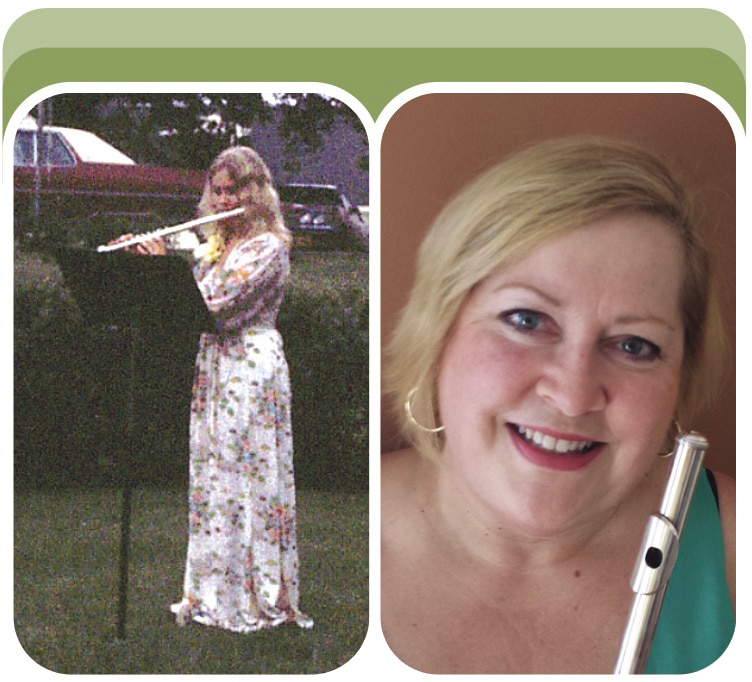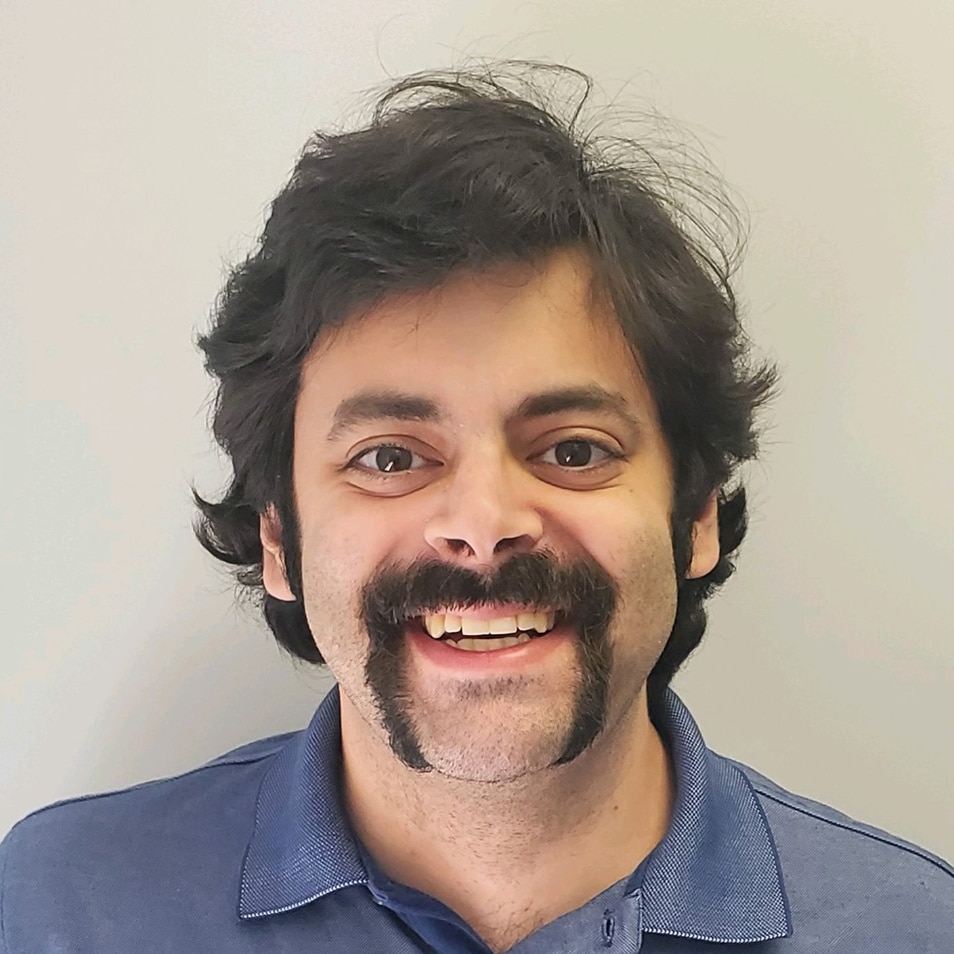Chicago area flautist flouts the usual outcome of bow hunter’s syndrome
Flautist Janice Frank, of Naperville, has a rare gift for woodwind instruments. She has played since age 7, has her master’s degree in music, and is the current secretary and past-president for the Chicago Flute Club. But a few years ago, when Frank was diagnosed with an even rarer fainting disease, she came very close to giving up her instrument.
“I was going to have to stop playing,” Frank says. “A life-long, enjoyable profession, just part of my being, and I would have had to stop. Just reaching [up to] my cabinet to get a box of cereal would make me feel like I could pass out.” The sensation would happen whenever she turned her head to either side or up or down.

Today, fortunately, Frank is still playing the flute and recently was preparing for her next concert — a collection of popular movie scores.
The outcome is nothing short of miraculous, thanks to an impressive intervention by Matthew Potts, MD, a neurosurgeon with Northwestern Medicine.
But in between the initial onset of symptoms and the surgery at Northwestern, Frank faced a stressful ordeal that highlights the struggles of addressing bow hunter’s syndrome — a rare disease most medical experts don’t know how to diagnose or treat.
“It was months of not knowing what the heck was going on,” Frank says. “Did I have cancer or a brain tumor? I just didn’t know.”
A radiology interventionist had diagnosed Frank with bow hunter’s syndrome, but he couldn’t do anything to treat it. Potts could. He successfully operated on her in a minimally invasive way that would preserve her ability to play music.
Bow hunter’s happens when one of the vertebral arteries is narrowed or pinched shut, preventing proper blood flow to the brain. The most common cause of this is a bone spur on vertebrae in the neck, which ends up pinching the artery when the affected person moves their head.
Potts says the position that causes symptoms is similar to how bow hunters turn their heads when using a bow and arrow; that’s how bow hunter’s syndrome got its colorful name.
In severe cases, turning one’s head can even lead to a stroke, Potts says.
I thought if I turned my head in my sleep, I might pass out and not wake up again.
Yet, turning one’s head, unfortunately for Frank, is essential when playing the flute. Musicians, due to their quick, repetitive movements, can develop all kinds of issues. One of the most common conditions is carpal tunnel in their wrist. Flautists are no exception to this, having to hold the instrument in a manner that’s uneven on the body.
At first, Frank says she noticed that when she was out with friends and would turn to listen to them talking, she would start to feel like she was going to faint. Eventually, the sensation worsened, and Frank had to continually keep her head facing forward.
As Frank’s condition progressed, she was increasingly spending rehearsals fighting off the feeling that she might faint. One night during a rehearsal, Frank says she kept track of how many times she almost passed out and found it was 64 times in just over two hours.
“It made me afraid to sleep at night,” Frank says. “I thought if I turned my head in my sleep, I might pass out and not wake up again.”
Before finding Potts, Frank spent six months getting nowhere with medical experts until someone identified where her artery was pinched. In her case, it was not caused by a vertebrae spur but possibly by bone spur tissue.
But even after getting the bow hunter’s diagnosis from a radiology interventionist, most doctors Frank saw weren’t willing or able to recommend a treatment option.
“They didn’t want to touch it,” she says.
One clinic recommended fusing Frank’s neck bones together, which would have reduced symptoms but would have resulted in Frank not being able to turn her head, or play the flute, ever again.
There are a number of reasons why diagnosing and treating bow hunter’s isn’t easy, even for medical experts, Potts says. The disease is very rare; there are many causes for dizziness that may have nothing to do with blood vessels; and it often takes a long road, from primary care to imaging to specialists, to identify whether or not there is true vascular compression.
In addition, most surgeons, Potts says, only will recommend procedures that they are comfortable doing.
What Potts found, which other experts missed, is that Frank’s vertebral artery on the other side of her neck had shut down due to a build-up of cholesterol (atherosclerosis). He knew he could re-open it to make it functional again.
Doctors who had previously noted the nonfunctional artery had concluded that it had been closed congenitally from birth, Frank says.
Potts was able to use a special stent — a flexible tube — designed for coronary arteries to help open Frank’s second vertebral artery. While plaque and cholesterol buildup can affect any artery, it is more common in the arteries of the heart than the brain. Additionally, doctors are often hesitant to attempt such surgery because if something goes wrong, it can be fatal.
In Frank’s case, the procedure worked. “Almost right away she was able to turn her head and not have symptoms,” Potts says.
Earlier this year, Frank thanked Potts and his team for their work by playing flute and piccolo for their clinic.
While Frank’s ordeal had a happy ending, she wonders how many musicians have had to leave their career or stop playing music because of similar issues that went undiagnosed.
“I do think this could happen to other flute players, without them knowing what it is,” Frank says. “Maybe it should even be called ‘flautist’s syndrome.’ There are more flautists than there are (professional) bow hunters.”
But overall, Frank’s story provides hope that those, including musicians, who do get bow hunter’s syndrome can be treated successfully without impacting their quality of life.
“This is why so many of us go into medicine: to help people,” Potts says. “It was really nice to be able to give her back her livelihood.”
Frank says she’s thankful for her recovery. “I’ve been playing my instruments. I’m happy.” The only new addition to her life post-surgery is an aspirin once a day — and her annual checkups with Potts.
Above photo: Janice Frank pictured on left plays the flute alongside her sister, Joyce
Originally published in the Fall 2024/Winter 2025 print issue.

Aaron Dorman is a reporter based in the Chicago area who specializes in environmental and/or technology issues. He doesn’t understand the difference between mostaccioli and baked ziti; thinks it might be a marketing scam.










